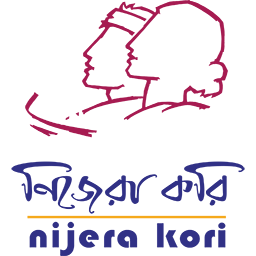Nijera Kori's narrative started as a response to the plight of rural women amid the aftermath of the 1974 famine. An expatriate nutritionist started the organisation by offering sustenance, shelter, and skills. Although its founder's departure led to a lull, the organisation sprang back to life in 1980. Motivated staff from other organisations joined, strongly influenced by Brazilian educator and philosopher Paolo Freire’s concept of ‘Concientisation’ seeking a stronger emphasis on empowerment rather than mere service delivery, fostering meaningful community change. This triggered a significant change in Nijera Kori's trajectory, catalysing a commitment to mobilise the marginalised and oppressed for their rights.
The very name speaks volumes – "We do it ourselves." As Bangladesh gained acclaim for innovative credit practices, Nijera Kori jests about being the antithesis: "We-don't-do-credit." By the end of 2022, Nijera Kori enters its 43rd year. Nijera Kori is working in 1,086 villages, 139 unions, 28 upazila and 14 districts in Bangladesh (December 2022). The organisation has 225,250 group members (126,297 women and 98,953 men). Their reputation reverberates globally, uniting local voices with national policies and empowering the unheard through dialogues with policymakers. Nijera Kori is not just an NGO; it's a symbol of grassroots resilience and collective determination.
In the world of NGOs in Bangladesh, one name stands out as a sign of self-reliance and empowerment – Nijera Kori, which fittingly translates to "We do it ourselves." Born anew in 1980, this dynamic feminist and activist organisation is registered with the NGO Affairs Bureau. (Registration number 066). Their journey embarks on a mission to awaken rural communities, breaking the shackles of economic, political, and social limitations that have long stifled their rights. Valuing democracy, equity, and secularism, Nijera Kori aims to dismantle patriarchy, class divides, and fundamentalism, giving voice to the marginalised in Bangladesh.
By now Nijera Kori has gained a reputation at the national and international level as being an organisation that can bridge local issues with the formulation of national policies and through their active interactions in bringing local, marginalised, unheard voices to dialogue with policymakers at the central level. It is also widely recognised for its work in successfully organising local autonomous groups that can negotiate and assert their own collective agency.
